
How Did You Get Into Consulting?
Abstract
For this milestone episode (200th show) Fred asked the co-host consultants how they got started in consulting.
ᐅ Play Episode
Your Reliability Engineering Professional Development Site
Author of CRE Preparation Notes, Musings", NoMTBF, multiple books & ebooks>, co-host on Speaking of Reliability>/a>, and speaker in the Accendo Reliability Webinar Series.
This author's archive lists contributions of articles and episodes.
by Fred Schenkelberg 2 Comments

For this milestone episode (200th show) Fred asked the co-host consultants how they got started in consulting.
ᐅ Play Episode
by Fred Schenkelberg Leave a Comment

Fred and Phil sat down to talk about MTBF, RAMS, and the work he does in the reliability world.
ᐅ Play Episode
by Fred Schenkelberg Leave a Comment
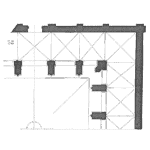
Organizations around the world are recognizing the value of reliability engineering. Or, they are realizing that creating a durable product that delights the customer is good for business.
Another contributor to the interest in reliable products is the news of recalls. One recall not only distrupts the normal course of business, it may alter the future of the company. It may cause the collapse of the organization. Some do better than others, yet a major, in the news, recall is something to avoid. Creating a reliable product helps.
So you made it past the initial round of interview and have been called back to talk to the senior folks. As with any job interview, being prepared helps you present your best self. Understanding the business drivers motivating an interest in reliablity is essential for your preperation. This is not how to prepare an accelerated test plan type question, rather it is about how the results of an ALT will provide relevant value to the organization. [Read more…]
by Fred Schenkelberg Leave a Comment

We are rather good at being surprised when setting expectations for the future. This is the essence of risk. The difference between what we expect to occur or would like to occur, and what does occur.
The definition of risk in ISO 9000:2015 and ISO 31000 include the phrase “ effect of uncertainty”. Let’s remove some of the uncertainty around the term uncertainty in the context of risk and risk management. [Read more…]
by Fred Schenkelberg Leave a Comment
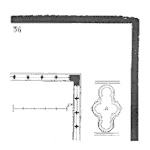
Fred and Mohammad sat down at RAMS 2017 to talk about the conference and his work in the field of reliability.
ᐅ Play Episode
by Fred Schenkelberg 2 Comments
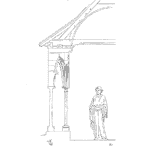
In a customer’s mind, the product works or it doesn’t. If it doesn’t work as expected it has failed. This may or may not be a reliability problem.
A customer or someone using your product brings a set of expectations to the experience. The range of expectations may range from very little to very high functioning, value production, and durability.
Failures are defined by customers.
In part, this is the functional capability, the operating within specifications, and the durability. The customer’s definition of reliability may or may not follow the design specifications.
It is the comparison of what should happen to what does happen. [Read more…]
by Fred Schenkelberg Leave a Comment
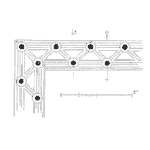
Did you know that hot air doesn’t rise when there is no or very little gravity?
The electronics used to steer an oil exploration drill head 5 miles deep in the earth experiences 200°C sulfuric acid immersion along with continuous 50,000G shocks.
I used to think the environment under the hood a car was difficult. [Read more…]
by Fred Schenkelberg 2 Comments

Every failure has valuable information you and your team require to improve reliability. During the development process, each failure may represent a future recall. Celebrate every failure. Let your FRACAS prioritize which failures to resolve.
[Read more…]
by Fred Schenkelberg Leave a Comment
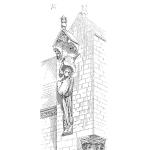
When something doesn’t work as expected, it is a failure. A common response to a failure by an organization is to restore the system or remedy the situation.
Each failure is unique to the product, industry, customer situation, expectations, etc. Selecting the appropriate response or corrective action when confronted with a failure may or may not be obvious.
Selecting the right corrective action depends on the business and legal factors, along with customer expectations.
For a given failure, thinking through the range of possible responses and selecting the right one takes care to meet the various stakeholder’s requirements or expectations. [Read more…]
by Fred Schenkelberg 2 Comments
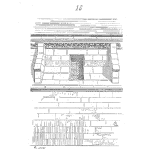
How well can you describe the use conditions your product will experience?
How well do you need to know the use conditions?
For some situations, the environment for your product is assessable, others are not. For some situations, we guess the range of expected stresses, others we measure.
The design process and the myriad decisions that impact product reliability rely on characterized environmental stresses.
A great place to consolidate how and where customers will use your product (including the relevant stress factors) is in an environmental manual. [Read more…]
by Fred Schenkelberg 4 Comments

From the simplest to the most complex system, building and using a reliability model permits the entire team to make better decisions.
Understanding and monitoring system reliability involves knowing both:
We use system reliability models to identify weak links, and focus resources, to meet our desired reliability goals.
Being able to build the right model to meet your team’s needs best is one of your roles as a reliability professional. [Read more…]
by Fred Schenkelberg 2 Comments
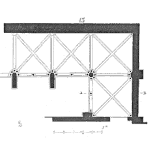
The term variance is a statistical concept related to the spread or dispersion of a set of data. Second to the mean, it a common value we may calculate.
We find standard deviation easier to understand and use (it uses the same units as the data) whereas variance uses the units squared.
We use variance in quite a few different ways. Let’s review just a few. [Read more…]
by Fred Schenkelberg 3 Comments

Finding solutions is reliability engineering too.
Have you noticed that finding solutions often requires just the right question, the proper framing of the issue, the query that reveals the problem and solution?
One of the best ways to lead a team and provide a focus on reliability performance is to ask the right questions.
Understanding objectives, risks, and failures is what we primarily do as reliability professionals. We work with teams to achieve or improve reliability performance.
We ask questions. [Read more…]
by Fred Schenkelberg 2 Comments

The world of risk management has a unique set of risk terminology.
Your ability to incorporate reliability concerns into risk discussions hinges on understanding the terms in use.
Let’s explore a few terms and how they relate to reliability engineering. [Read more…]
by Fred Schenkelberg Leave a Comment

Reliability goals or objectives are just a starting point.
You goals represent your target at one point in time.
At best they represent what your customers expect for reliability performance at one point in time.
When goals are set well, they anticipate what your customer expects when they receive your product. In a perfect world, you customer will find the reliability performance just a bit better than expected.
It’s not a perfect world. [Read more…]